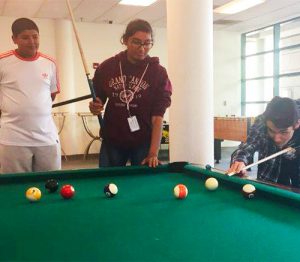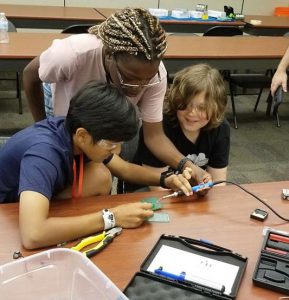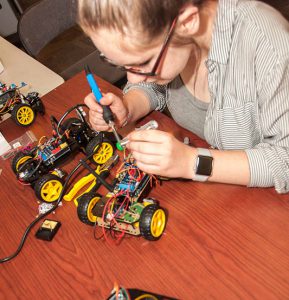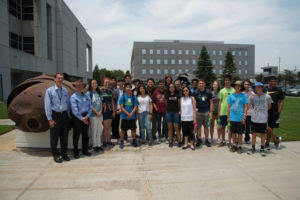What is Civil Engineering?
Civil engineering is one of the most long-standing engineering fields that work with building and developing the resources which cater to the surroundings. It comprises the upkeep of the physical and innately developed environment; generally includes renewing roads, bridges, airports, dams, pipelines and sewage systems, structural parts of buildings, and railways. By its origin, it is linked to advancements in physics and mathematics with designs and material development. In a nutshell, civil engineering is proficient engineering that values construction and design.
Focused on the design, construction, and maintenance of the physical and naturally built environment, civil engineers are the masterminds behind the infrastructure and structures that make up our everyday lives.

What are the Branches of Civil Engineering?
Civil engineers build things people use every day as a society. There are many specializations they choose from in terms of distinguishing what they do. Specializations include structural engineering, environmental engineering, geotechnical engineering, water resource engineering, transportation engineering, construction engineering, and urban planning.
-
Urban and Municipal Engineering
This kind of engineering is associated with designing a typical municipal infrastructure such as streets, sidewalks, street lighting, sewers, and solid waste management. In the municipal and urban engineering departments, the engineers are supposed to look after the designing and maintaining of public parks and underground utility lines. Each component of municipal public infrastructure, including waste collection networks and bridges, is impacted by municipal and urban engineers.
-
Transportation Engineering
Transportation includes the design of transportation systems like highways, public transportation networks, and roads. The procedure and maintenance of the respective transportation systems, and the understanding of traffic operating systems, are included in the responsibilities of a transportation manager.
-
Construction Engineering
This sector overlooks the planning and operations of the whole construction procedure. For this field, thorough knowledge of construction processes, business, management, and economic aspects of a construction project is required. Construction managers are also supposed to manage and arrange resources throughout the project. However, the previously mentioned task involves the logistics of scheduling staff, equipment, and materials during the lifecycle of a project. An example of a project can be a highway.
-
Structural Engineering
This particular branch includes the design of small and huge structures to make sure they are resistant to the stresses and pressures of their environments. A comprehension of building physics and statics, alongside local building design codes, is required to function in the discipline. Structural engineers can work on numerous kinds of structures, such as bridges, skyscrapers, and tunnels.
-
Water Resource Engineering
Water resource engineering involves the management of water resources important to everyday life. Water resource engineers must possess an understanding of standard water procedures, therefore the water can be utilized for drinking and living. Water resources engineers also protect the water bodies, groundwater, and soil. The engineers also design dams and ensure their erosion protection.
-
Environmental Engineering
Environmental engineering is about protecting the local population from menacing environmental effects, it also shields the environment from the impacts of human activity and climate change. They also deal with water and air pollution, waste disposal, recycling processes, large-scale farming, and soil contamination.

What Skills do They Need?
The skills required for a civil engineer job can vary a lot, depending on the position. Every civil engineer must have a firm understanding of government and industry standards, objectives, and requirements. Academically, civil engineers should possess great leadership, decision forming, and analytical thinking traits. Core knowledge of mathematics, computer programming, excellent communication skills, and technical writing are also demanded.
Communication is an integral skill; engineers should listen to and communicate with their co-workers and clients. Also, it is the essential skill of their job that they must prove themselves as problem-solvers. They have to come up with quick solutions to complex problems, hence critical thinking is necessary.
What Careers are there in Civil Engineering?

-
Building Engineer
These experts provide maintenance and repair services for workplaces, apartment buildings, and health care facilities. These engineers might watch over private hotels and manufacturing facilities. Building engineers must abide by the local fire and building codes to ensure that structures get access to federal health and disability codes.
-
Construction Estimators
In this field, they have to figure out the factors that affect the production duration, cost of the project, workforce, and materials availability. They manage blueprints and partner with architects and clients to generate accurate cost estimates. Construction estimators overlook the project and suggest ways to reduce the costs. They also maintain the records of estimated and physical project costs.
-
Design Engineers
Design engineers join hands with research and development teams to evolve design parameters and reach requirements. They use CAD (computer-aided design) or CAE (computer-aided engineering) software to develop models and plans. Design engineers may make some changes to the existing plan so that the project meets the desired objectives and specifications.
-
Environmental Engineer
They are the engineers who utilize knowledge like engineering, studies of soil science, and biology to acquire environmental solutions. Environmental Engineers analyze and prepare investigative reports. From designing projects to providing solutions to simplify issues such as waste disposal, recycling water, and air pollution control is their core job. Engineers reevaluate scientific reports to create recommendations or provide information for legal issues.
How Much do They Earn?
This profession is emerging and is envisioned to increase by 8% by the end of 2030. On average, Civil Engineers in the United States generally earn around $88,700 per year. This range is though broadly lying between a minimum of $47,000 to a highest around $135,000. However, the average yearly pay is earned depending on the skillfulness, working experience, and the places or cities where you are offering your skills.
How to Become a Civil Engineer?
It is required to study a 4-years program; a bachelor's degree in civil engineering or civil engineering technology to get a Professionally qualified engineer. But that's not enough! Usually, courses like statistics, math, engineering mechanics and systems, and fluid dynamics are studied thoroughly. In-depth studies continue in choosing electives courses that differ from classrooms, labs, and fieldwork. Also, a degree from a program by ABET; Accreditation Board for Engineering and Technology, is required to earn a professional engineer license (PE).
If you think that a future in civil engineering may be for you, or if you aren't completely sold on the civil engineering module yet make sure you check out our engineering summer camp. At the TryEngineering Summer Institute we are completely focused on engineering for teens, and providing them with a hands on experience in the industry.
Why are Civil Engineers so Important?
Civil engineers importance stems from their role as the architects of the physical infrastructure we rely on. From the intricate network of roads, bridges, and railways that connect us, to the sturdy buildings that shelter us, and the sophisticated systems that deliver clean water and sanitation, the fingerprints of civil engineers are everywhere.
Their expertise goes beyond mere construction; they are the safety guardians, ensuring the structures they design can withstand the test of time and natural disasters. They are the sustainability champions, incorporating eco-friendly practices and minimizing environmental impact in their projects. They are the economic catalysts, laying the groundwork for businesses to flourish and communities to thrive.
Civil Engineering Links and Resources
- American Society of Civil Engineers: represents more than 140,000 members of the civil engineering profession worldwide and is America’s oldest national engineering society.
- Construction Specifications Institute: a national association of specifiers, architects, engineers, contractors, manufacturers, and others who are experts in building construction.
- International Association for Bridge and Structural Engineering: provides information on all aspects of planning, design, construction, maintenance, and repair of civil engineering structures.
- Council on Tall Buildings and Urban Habitat: a global organization that is the creator of the criteria upon which tall building height is measured and which provides multi-disciplinary information on tall buildings and sustainable urban environments.
- American Society of State Highway and Transportation Officials: fosters the development, operation, and maintenance of an integrated national transportation system.
- American Public Transportation Association: works to ensure that public transportation is available and accessible for all Americans in communities across the country.
Interested in other Sections of Engineering?
We have more information on other sections of engineering if you are interested. You can check out our content below and learn more about each section of engineering, their different branches, and how to become a engineer one day!
At the TryEngineering Summer Institute summer engineering programs for high school students, you’ll explore various engineering fields, such as electrical, civil, mechanical, and aerospace. Our STEM summer course allows you to meet working engineers and experience VIP tours of engineering companies and centers. Learn new skills and engage in hands-on projects that explore how engineers can solve real-world problems.
The TryEngineering Summer Institute is a program from IEEE, the world’s largest professional association for the advancement of technology. Our more than 417,000 members in 160 countries, including more than 120,000 student members, help us provide the trusted "voice" for engineering, computing and technology information around the globe via highly-cited publications, conferences, technology standards and professional and educational activities. Our curriculum is created specifically for this program by IEEE STEM summer specialists.
Last summer we visited:
- NASA's Johnson Space Center (Rice University students)
"If you are ever thinking about doing engineering or trying to see what it's like, I would 100% recommend this camp." - 2023 student
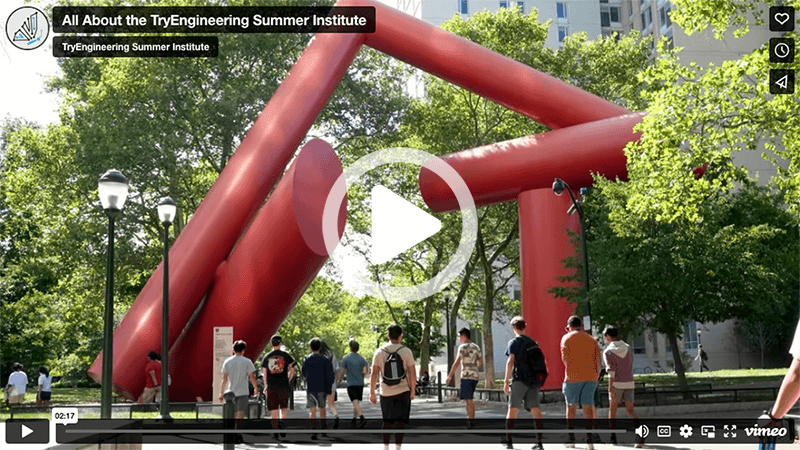
Click above to watch our video: All About the TryEngineering Summer Institute
Our Engineering Program
TryEngineering Summer Institute gives teens the opportunity to explore a variety of engineering disciplines in a fun, hands-on way. The program is ideal for students who are considering a degree or career in engineering, as well as for those that are curious to learn more. Whether your teen is brand new to engineering, or has taken a few classes in school, every student will have fun tackling a variety of engineering design challenges while developing skills in engineering, communication, and consensus-building. The program is designed by IEEE STEM summer specialists includes various sections like our mechanical engineering module, civil engineering module, and our electrical engineering module. All of these are specifically for our TryEngineering Summer Institute
Students participate in team-based, hands-on design challenges, hear from and interact with working engineers, and experience exciting off-campus field trips to local engineering sites.
The program is perfect for those who want to:
- Find out how engineering is applied in the real world, and how it’s shaping our future.
- Participate in multi-disciplinary projects in electrical, civil, mechanical, aerospace and other engineering disciplines.
- Learn to think like engineers while building critical thinking, communication and collaboration skills.
- Experience how engineers work in teams to solve local and global challenges.
- Gain insight into what it’s like to study engineering at the university level.
- Engage with professionals working in your field of interest.
- See real-world engineering projects while learning about future academic and career possibilities through exciting trips and tours.
- Build awesome projects that teach engineering concepts by making things like rockets, remote control cars, drones, trebuchets, building and soldering circuits, and much more.
…All while having fun with new friends on one of our engineering campuses.
Curriculum Overview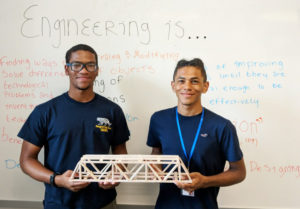

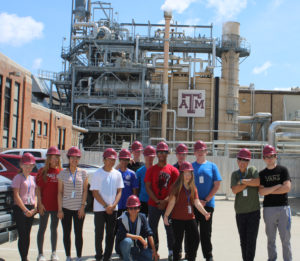
Questions about our programs?
Call us at +1 315-816-4023 or email info@tryengineeringinstitute.org
Program Highlights

Hands-On Design Challenges

Exclusive Guest Speakers
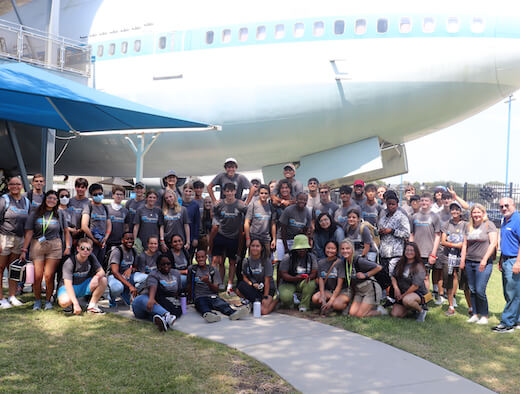
Exciting VIP Tours
and Field Trips
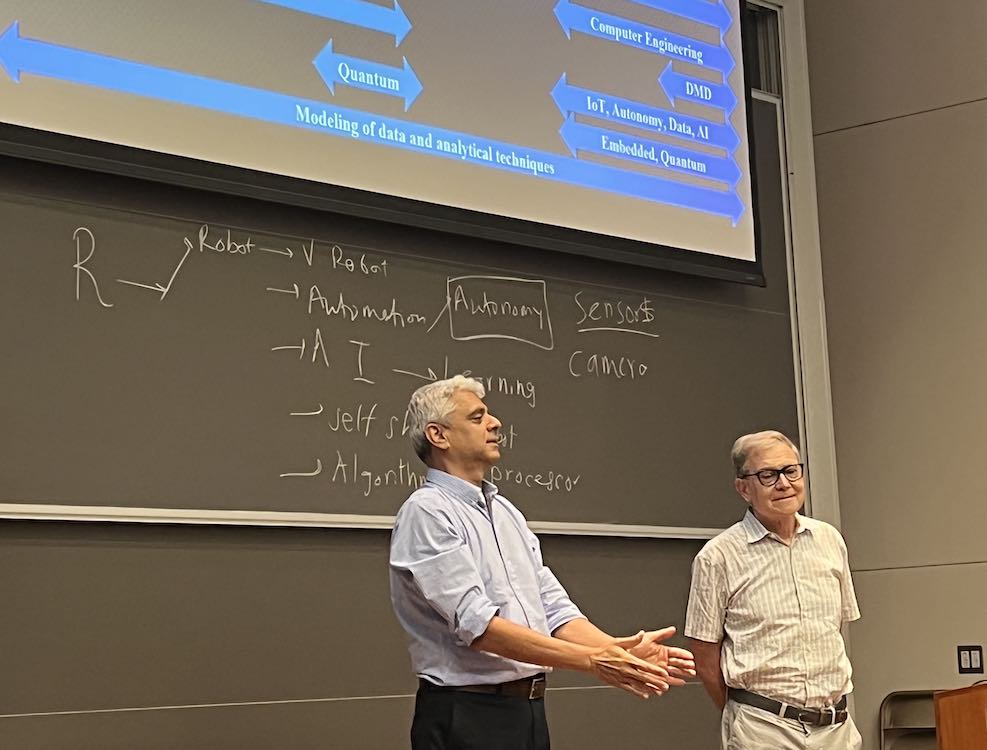
Access University Engineering Labs and Tech Spaces
Scholarships
A limited number of scholarships are available for those that demonstrate financial need. Click the link below to learn how to apply.
Locations
Philadelphia, PA
Session 1: July 14, 2024 - July 22, 2024
Session 2: July 25, 2024 - August 2, 2024
Houston, Texas
Session 1: June 30, 2024 - July 8, 2024
Session 2: July 11, 2024 - July 19, 2024
San Diego, California
Session 1: June 30, 2024 - July 8, 2024
Session 2: July 11, 2024 - July 19, 2024

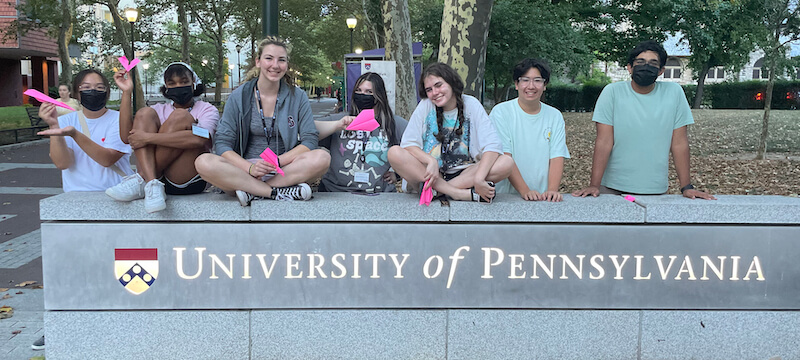




 With nonstop sunshine and the beaches, strands, shopping and more just a stone’s throw from campus, our USD TESI students will really have a wonderful summer. With such beautiful surroundings, we get the chance to explore and maybe even find the legendary fish taco truck!
With nonstop sunshine and the beaches, strands, shopping and more just a stone’s throw from campus, our USD TESI students will really have a wonderful summer. With such beautiful surroundings, we get the chance to explore and maybe even find the legendary fish taco truck! The University of Pennsylvania is a fabulous, safe urban campus located in the heart of Philadelphia. This allows us easy access to many of the local sights, sounds and flavors available to us!
The University of Pennsylvania is a fabulous, safe urban campus located in the heart of Philadelphia. This allows us easy access to many of the local sights, sounds and flavors available to us! The entrance is staffed by Penn Security 24/7. Inside is our air-conditioned wonderland, packed with the same fabulous amenities the Penn students enjoy. We also have our own outdoor area, inside the secure walls, where we have patio seating, tables, a grassy area, and more. It is quite lovely.
The entrance is staffed by Penn Security 24/7. Inside is our air-conditioned wonderland, packed with the same fabulous amenities the Penn students enjoy. We also have our own outdoor area, inside the secure walls, where we have patio seating, tables, a grassy area, and more. It is quite lovely.




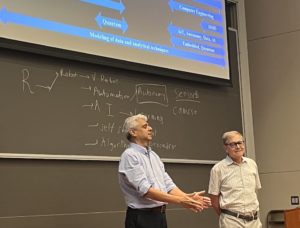 Past students have had the opportunity to discover on-campus engineering tools, equipment and technology that will be available to them as future engineering students. In previous summers we have toured the engineering departments at our host venues to meet and greet and see what are the latest aspects and cutting edge work that is being done.
Past students have had the opportunity to discover on-campus engineering tools, equipment and technology that will be available to them as future engineering students. In previous summers we have toured the engineering departments at our host venues to meet and greet and see what are the latest aspects and cutting edge work that is being done.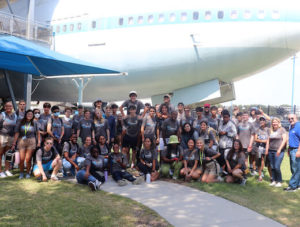 Get a peek at the inner workings of top engineering companies and centers and discover the world inside your dream career! In previous years, our students:
Get a peek at the inner workings of top engineering companies and centers and discover the world inside your dream career! In previous years, our students: Students will gain valuable knowledge from engineering professionals on how to succeed in college and in an engineering career.
Students will gain valuable knowledge from engineering professionals on how to succeed in college and in an engineering career. TryEngineering Summer Institute students explore engineering design challenges through hands-on teamwork. Previous students participated in projects such as:
TryEngineering Summer Institute students explore engineering design challenges through hands-on teamwork. Previous students participated in projects such as:



